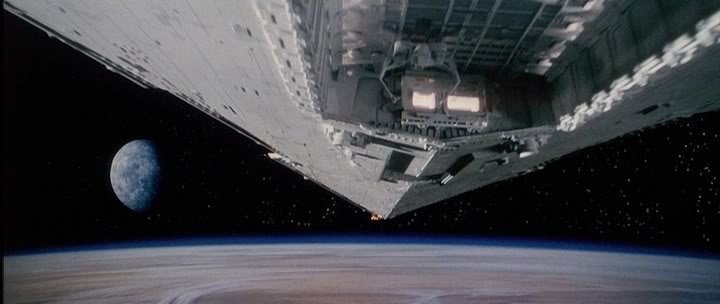Due to other Patreon commitments and the length of time this took to transcribe, my discussion with Riley MacDonald about the Disney Plus Star Wars series Andor (whose second season ended in May) has been a long time coming. It took nearly six months to slot in as a $5/month tier reward. Nonetheless, Andor is also the most recent film or television project that I've covered online, and the only one from this current year. While very much a TV show - at least within the widespread understanding that streaming services fall into the same broad category as the old networks and cable stations - Andor's roots are firmly cinematic. Not only does the series and its world exist in the once-exclusively-movie-based Star Wars universe created by George Lucas in 1977, Andor also leads even more directly into the events of the 2016 Rogue One, itself a prequel to the first Star Wars. Directed by Gareth Edwards and written by Chris Weitz and Tony Gilroy (from a story by John Knoll and Gary Whitta), Rogue One is a stew emerging from different collaborators. That said, Michael Clayton writer/director Gilroy receives particular acclaim for polishing the film's script to sharpen its plot and characters. Ironically, given the history of both mediums, Gilroy emerges as a more singular auteur on Andor, as a showrunner supervising every detail and providing the overall organization despite not directing any particular episode. Choosing a character who was not even the central lead of Rogue One as its protagonist, Andor was not as highly anticipated as other Star Wars shows when it debuted in 2022 but quickly earned astonished and rapturous praise for its gritty realism - not a term anyone would usually associate with the space opera franchise. Essentially a spy thriller grounded in a thoughtful study of how revolutions have often developed throughout (Earthly) history, Andor became particularly popular on an American left adrift after Bernie Sanders' failed presidential campaigns. With its second season arriving mere months after the inauguration of Donald Trump's second, and already far more radically authoritarian, administration, this aspect of the show's popularity only grew.
Introducing us to Cassian Andor (Diego Luna) as a scrappy criminal on the proudly communitarian and industrial planet Ferrix, Andor charts Cassian's journey across two seasons within the orbit of merciless, dedicated spymaster Luthen Rael (Stellan Skarsgård), alongside fellow Rebels like Bix Caleen (Adria Arjona), Kleya Marki (Elizabeth Dulau), and Vel Sartha (Faye Marsay). Their stories are cross-cut with the double life of Senator Mon Mothma (Genevieve O'Reilly), the growing isolation of the fervent Saw Guerrera (Forest Whitaker), and the efforts of Imperial intelligence officer Dedra Meero (Denise Gough) and the fellow-traveling bureaucrat Syril Karn (Kyle Soller) to track them all down. The highlight of the first season may be an extended foray onto the prison planet Narkina-5, which crystallizes Cassian's political awakening and galvanizes a movement. In the second season, the show's formerly loose three-episode arc organization becomes ironclad, with each trio representing a different year in the approach toward Rogue One's (and the first Star Wars') drama. Familiar characters like the Death Star's supervisor Orson Krennick (Ben Mendelsohn) merge with Andor's ensemble as we become re-acquainted with familiar worlds like Yavin as it develops from untamed wilderness to bustling Rebel base. The centerpiece of this season is probably the ruthlessly planned and executed Ghorman Massacre, in which a once-venerated people are targeted for genocide on the pretext of terrorism, but actually because their resources are needed to complete a superweapon.
Joining me to discuss Andor for the first time since he appeared on my podcast covering The Lighthouse is my cousin Riley MacDonald. In this case, I've transcribed and edited our sprawling, initially four-hour dialogue into text form (as I did with an earlier MacDonald conversation, in this case with his brother Tyler to discuss Killers of the Flower Moon). Riley's astute political insight and unique experiences feed into his analysis of Andor as not only a work of art and entertainment but also an acute exploration of political struggle with constants across time and (literal) space, even when located in a galaxy far, far away. If you want to check out many other pieces devoted to that galaxy, all of my Star Wars-labeled posts including this one are gathered here (and also listed at the end of the link below).
Meanwhile, for all tiers, I'm also previewing text of my narration for an upcoming video essay - the first chapter since 2021 in my long-dormant Mirrors of Kane video series. I intend to finally finish this project, hopefully alongside several others, next year for Citizen Kane's eighty-fifth birthday...a decade after I offered the first chapter on its seventy-fifth. The Andor conversation isn't the only thing I've been working on that takes some time to put together...
What are the exclusive October rewards?




















